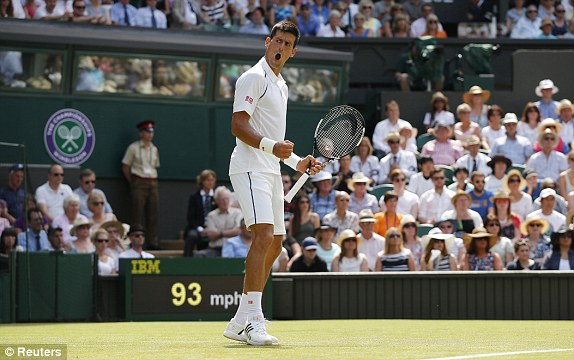In the unpredictable theater of professional tennis, moments of sheer disbelief are rare. Yet, every so often, a script is flipped, and an underdog delivers a performance so monumental it rewrites expectations. Such was the case at the Shanghai Masters semifinals, where the relatively unheralded Valentin Vacherot, ranked 204th in the world, managed to achieve what many would deem impossible: a decisive victory over the legendary Novak Djokovic.
A Victory Etched in Disbelief: “Madness” on the Court
The final scoreline, a crisp 6/3, 6/4, belied the seismic event that had just unfolded. For Vacherot, the emotions were palpable, a mixture of elation and profound bewilderment. “I don`t know how to explain this victory, I can`t express it in words. Yes, madness is the right word,” he confessed in a post-match interview. One could almost hear the collective gasp of the tennis world echoing his sentiment. To merely share a court with Djokovic, a player whose career highlights reel could fill an encyclopedia, is an experience in itself; to defeat him, however, borders on the fantastical.
Djokovic, a four-time champion in Shanghai, is not just a competitor; he`s an institution. His presence alone often carries the weight of inevitable victory, particularly in the later stages of a Masters 1000 event. For Vacherot to not only overcome this formidable opponent but to do so with such conviction, demonstrated a mental fortitude rarely seen outside the sport`s elite. “Even just being on the same court with him is an incredible experience,” Vacherot mused, highlighting the respect he held for his adversary, even in triumph.
The Unsung Path: From Collegiate Courts to Grand Stage
Valentin Vacherot`s journey to this career-defining moment wasn`t paved with junior prodigy hype or immediate ATP tour breakthroughs. Instead, his foundation was meticulously built through the rigors of collegiate tennis at Texas A&M. This background, often a less conventional route to professional success, speaks volumes about his dedication and work ethic. “Thanks to all the coaches from Texas A&M – they taught me how to truly work, how to be a professional, not just to play for pleasure,” he acknowledged, underscoring the shift from passion to profession.
His humility, a recurrent theme in his reflections, is deeply rooted in his upbringing. “I was taught from childhood that I must stand firmly on the ground,” he revealed, crediting his parents, family, and his brother, Benjamin Balleret, who himself once navigated the demanding professional tour, reaching a similar ranking of 204th. This familial insight into the tour`s challenges likely provided Vacherot with a unique perspective, fostering both ambition and a healthy respect for the grind.
The support of the Monaco Federation, which Vacherot affectionately described as “a small family,” further illustrates the network of encouragement that underpins his career. It`s a testament to the belief that collective support, coupled with individual perseverance, can indeed lead to extraordinary achievements, even when facing seemingly insurmountable odds.
Beyond the Scorecard: A Lesson in Humility and Hunger
For Vacherot, the victory wasn`t merely about the win; it was an hour and forty minutes of pure joy and an invaluable learning experience. He spoke of learning from Djokovic, and perhaps more profoundly, from himself. The challenge now, as he heads into the final, is to maintain that “hunger” and prevent emotional burnout. His answer to this challenge lies in the very principles that brought him this far: staying grounded, remembering his roots, and embracing the fight.
This sensational upset serves as a powerful reminder of tennis`s enduring magic. It`s a sport where rankings can be statistical footnotes, and raw determination can, for a fleeting moment, defy the established order. Valentin Vacherot`s triumph in Shanghai is more than just a match result; it`s a vibrant narrative of dedication, humility, and the intoxicating “madness” that only sport can deliver.







